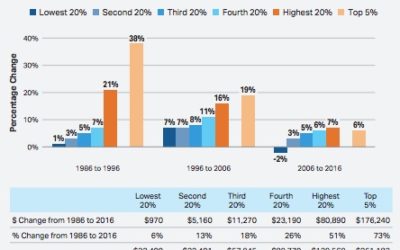
By: Reyna Gobel
Veterans’ education benefits don’t begin and end with the GI Bill. I wrote about them for decades and they helped me get through grad school. I received VA education benefits because my dad was 100 percent totally and permanently disabled due to a service-connected disability. Once I qualified, I didn’t receive notification.
Ask for the Veterans’ education dollars if you think you might qualify. The money isn’t automatically assigned. Even the GI Bill requires an application.
Here’s a list of resources and links to my favorite and most thorough articles I’ve written on the subject.
1. State Benefits for Military Members, Spouses, and Dependents
State benefits are among the least known military benefits. Yet, state Veteran Affairs Departments may offer free tuition to active-duty members, veterans, spouses, and dependents. Sometimes they offer free tuition or a small monthly to spouses, veterans, and dependents. In-state residency is often required, which means the military member or veteran lives in (or lived in if deceased) the same state they or their dependents attend college. However, states such as Nevada offer exemptions for out-of-state residents stationed in their state during service. As for whether the GI Bill can be used in conjunction, it depends on the state. Some states allow use of state and federal benefits at the same time. Others don’t. If you can’t use both concurrently, you may save the GI Bill for grad school.
Find out about state-level education benefits on your states’ veterans affairs site or through on campus veterans affairs offices at nearby colleges.
2. Check into The Fisher House Foundation.
Some organizations offer hundreds of scholarships to military families. The Fisher House Foundation is one of them. 500 $2,000 scholarships are offered annually through their Scholarships for Military Children Program. Application season starts in December for the following academic year.
The scholarship program is for students with a Uniformed Services Identification and Privilege Card. To spread out scholarships regionally, at least one is awarded per commissary.
The Fischer House Foundation has a free scholarship search tool for military families. FastWeb lists dozens of scholarships for military service members, veterans, and their families. The U.S. Department of Education lists common military scholarships, too.
3. Build Your Troop Digitally and On Campus.
Luckily, there are quite a few resources military families have for learning about and sometimes fighting for their benefits. My family’s story is case in point. It took my dad 10 years of fighting for his VA benefits before his service-related disability were officially granted. I had to get the White House involved. I was 17 and got through to the Vice President’s office by luck. Since not everyone can do that, there are other options for help.
The first set of resources are digital and on campus. Carefully reviewing federal and state Veterans’ Affairs websites regarding education benefits. Then, you’ll know what questions to ask. For on campus offices, I created a sample list of questions in this article. When comparing two schools, how helpful the on-campus veteran affairs can determine which school you school you choose. Over 100 campuses offer a special program called VetSuccess on Campus (VSOC). These offices go beyond knowledge of government veterans’ benefits and connect veterans and eligible family members with a range of services from vocational help to navigating other on campus offices.
4. Build Your Off Campus Troop.
Your off-campus troop includes the Veterans Education Benefits phone number, on-base military services help, and veterans service organizations. In my family’s story, my education benefits weren’t approved until I was about 25, even though I helped my dad get his benefits when I was 17. One of the problems was he was initially categorized as 60 percent unemployable, when he needed a designation of 100 percent permanently and totally disabled due to a service-connected disability. He was very sick due to Agent Orange poisoning, but it took several appeals. When the correct designation was awarded, we didn’t know my mom, myself, and my brother could qualify for education benefits.
I checked the Veterans Education Benefits for Survivors and Dependents webpage. I also called the VA at 888-442-4551 for more information. Sure enough, I qualified for a monthly stipend that paid for part of my grad school tuition AND retro payments for my last year of my undergraduate degree. My mom went back to school to get her social work master’s to serve homeless veterans by connecting them with the resources they need.
If you need extra help applying for and learning about military financial aid of all kinds, check out the Veterans and Military Service Organization directory. You’ll find local organizations that advocate for and act as extra resources of information and sometimes additional scholarships for military families. Spouses of veterans can also turn to the National Military Family Association for scholarships and help with child care costs.
5. Additional Financial Aid Resources
Traditional scholarship sites and colleges themselves may offer resources based on military affiliation, GPA, or talents and skills specific to the individual. The best place to start is filling out the Free Application For Federal Student Aid (FAFSA). This action lets the school, your state, and the federal government know you’d like money for college. The FAFSA has a reputation of being the fast track to student debt, but it’s the fast track to free money in the form of grants and scholarships. Even the Pell Grant that is traditionally for lower income families has a military version called the Iraq and Afghanistan Service Grants.
Scholarships.com and Sallie Mae are filled with both military specific and general scholarships for academics, demographics, and talents. When searching for the best scholarships for your student, use key words for military plus other scholarship-worthy attributes such as a high GPA or a musical talent.
Bottom Line
There’s lots of free and earned money available for education for veterans, active-duty military service members, and their families. The first step in finding education dollars is thorough digital research beginning with national and state veterans affairs websites. Then, visit on campus veterans affairs offices and local veterans service organizations for additional help. In addition, fill out the FAFSA and look into scholarships and grants directly through colleges and general scholarship websites.



